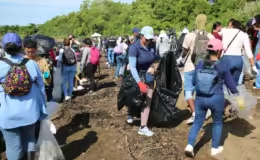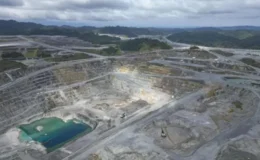Breaking free from “Canal” talk. Panama POSITIVES at risk with new De-Forestation Numbers.
- By : James Bryson
- Category : Agriculture, Conservation, Environmental

The Ministry of Environment of Panama warns of the “worrying” increase in deforestation and degradation in the Central American country and sees the implementation of environmental protection policies as an “urgent need”, following the release of a study within the framework of the mechanism for Reducing Emissions from Deforestation and Degradation (REDD+).
“A worrying trend towards increased deforestation and degradation has been identified, which highlights the urgent need to strengthen actions to protect and restore the country’s ecosystems,” the ministry warned in a statement.
For this reason, he added, “it is essential to redouble efforts and strengthen conservation policies to guarantee the sustainability of forest resources and the climate resilience of Panama.”
The Forest Reference Level (FRL) 2025 study , the “most exhaustive” study carried out to date on degradation and deforestation, shows, despite the challenges, the privileged situation of Panama, which records negative carbon dioxide emissions, due to the fact that CO2 absorptions are still greater than the greenhouse gas emissions it produces.
“This is negative due to the significant contribution of the country’s mature forests, secondary forests, mangroves and forest plantations,” the report said.
The objective of this study, the document details, is to provide a solid basis for the effective implementation of REDD+ activities, with a specific focus on reducing emissions, increasing absorptions and generating verifiable results.
“(The challenge is) to stop deforestation and destruction (…) This Mapathon (the study) gives us a baseline to be able to add financial resources through carbon capture and carbon fixation to be able to guarantee our natural resources and their survival forever,” Panama’s Environment Minister Juan Carlos Navarro told EFE the day before.
Navarro, also an environmentalist, admitted that among the causes of forestation is “often disorderly development” or that areas are deforested to convert them into pastures or land dedicated to grazing to feed and keep livestock, while “natural resources are unnecessarily destroyed.”
Panama is one of three carbon-negative countries in the world. In addition, it has been protecting 54% of its marine waters since 2023.



No Comments